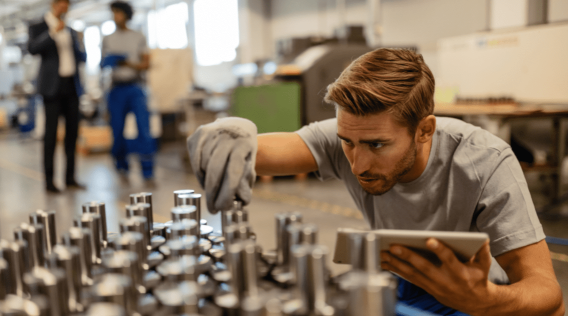Aluminum is a versatile metal that is popularly used in various applications because of its light weight, strong and durable nature. It is commonly used in the manufacturing of automotive parts, aircraft parts, building materials, and kitchenware. When it comes to aluminum, there are two types: cast aluminum and regular aluminum. In this article, we’ll discuss the differences between the two and determine which one is stronger and more durable.
What is Cast Aluminum?
Cast aluminum is a type of aluminum that is formed by casting a molten metal into a mold. It is commonly used in the manufacturing of automotive parts, cookware, and furniture. Cast aluminum is known for its ability to take on complex shapes and intricate designs that cannot be achieved with regular aluminum.
Cast aluminum is made by melting aluminum ingots or scrap and pouring the molten metal into a cast. The metal is then cooled and solidified, and the cast is removed to reveal a solid piece of aluminum. The process allows for the creation of intricate shapes and designs, making it ideal for ornamental pieces and decorative items.
What is Regular Aluminum?
Regular aluminum, also known as wrought aluminum, is a type of aluminum that is created by rolling, extruding, forging, or stamping the metal into a desired shape or design. It is commonly used in the manufacturing of building materials, automotive parts, and household items.
Regular aluminum is made by taking aluminum ingots and heating them to a temperature where they can be rolled, extruded, forged, or stamped into the desired shape. The process allows for the creation of sheets, bars, plates, and other shapes that can be used in various applications.
Strength and Durability
When it comes to strength and durability, both cast aluminum and regular aluminum have their strengths and weaknesses. Cast aluminum is generally stronger than regular aluminum because of its crystalline structure. The process of casting allows for a more uniform and consistent distribution of the aluminum atoms, making it more resistant to stress and deformation.
Regular aluminum, on the other hand, is weaker than cast aluminum because of its grain structure. The process of rolling, extruding, forging, or stamping the metal creates a grain structure that can be more prone to cracks and fractures under stress.
However, regular aluminum can be made stronger by alloying it with other metals, such as copper, magnesium, or zinc. These alloys can improve the strength and durability of regular aluminum, making it more resistant to stress and deformation.

Corrosion Resistance
When it comes to corrosion resistance, both cast aluminum and regular aluminum are susceptible to corrosion. However, regular aluminum is generally more resistant to corrosion than cast aluminum. This is because regular aluminum has a more uniform grain structure, which makes it less prone to the formation of corrosion.
Cast aluminum, on the other hand, can be more susceptible to corrosion because of its casting process. The process can create small voids and pores in the metal, which can allow moisture and corrosive chemicals to penetrate the metal and cause corrosion.
Conclusion
In conclusion, both cast aluminum and regular aluminum have their strengths and weaknesses when it comes to strength, durability, and corrosion resistance. Cast aluminum is generally stronger than regular aluminum, but regular aluminum can be made stronger by alloying it with other metals. Regular aluminum is generally more resistant to corrosion than cast aluminum because of its more uniform grain structure. Ultimately, the choice between cast aluminum and regular aluminum depends on the specific application, design, and requirements of the project.
-

- Thixomolding parts & components cell phone middle board processed
-

- Custom-made thixomolding parts UAV components with CNC machining &surface treatment
-

- Magnesíum álfelgur deyja-steypu Bílavarahlutir RDM húsnæði
-

- Vinsælt íþróttahjól fyrir börn Hágæða jafnvægishjól fyrir börn Barnahjól
-

- Magnesium alloy die-casting Auto parts Front bumper Anti-collision beam
-

- Magnesium thixomolding parts laptop housing cover B

 0086-750-5616188
0086-750-5616188 +86 13392089688
+86 13392089688 sales@zhongmei-tech.com
sales@zhongmei-tech.com







